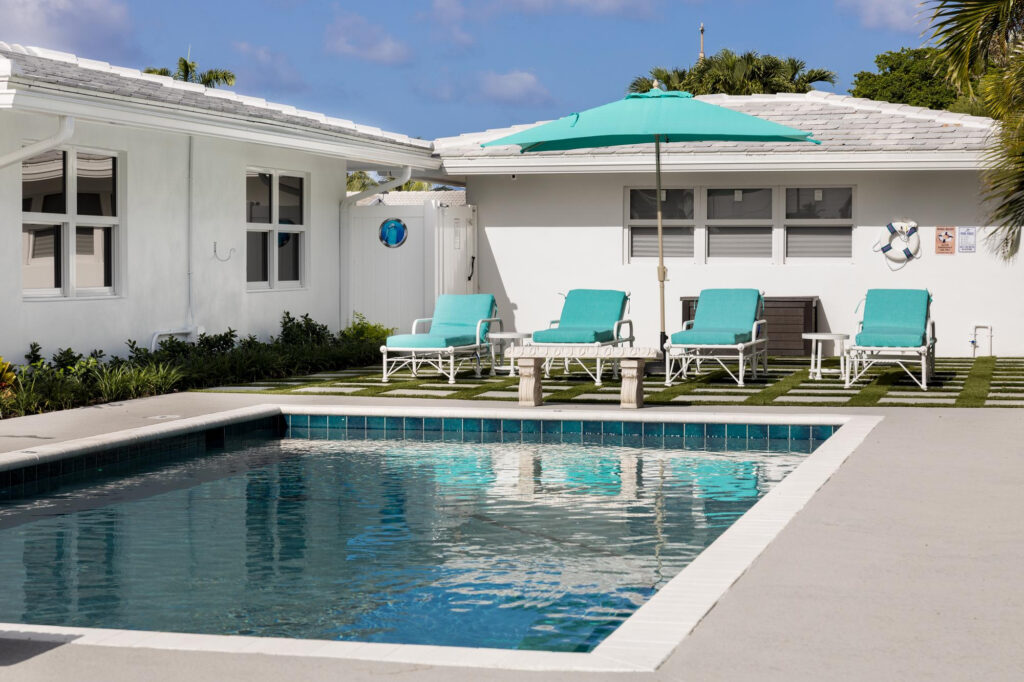What Every Pool Team Needs to Coordinate Routes Efficiently
Efficient route coordination is vital for pool service teams to optimize their operations, reduce costs, and enhance customer satisfaction. In this blog post, we will explore essential strategies and tools that pool teams can implement to coordinate their routes more effectively. From leveraging technology to understanding customer needs, these insights are designed to streamline your operations and improve your overall service delivery.
In the pool service industry, teams often face unique challenges in managing routes. High demand, varying service frequencies, and the need for timely responses to customer inquiries make it critical for teams to plan their schedules carefully. If not managed well, inefficiencies can lead to increased fuel costs, wasted time, and ultimately, unhappy customers. This article dives into key aspects that every pool team should consider when coordinating their routes.
Understanding the Importance of Route Coordination
Route coordination plays a pivotal role in the operational success of any pool service company. In essence, it involves organizing service visits in a manner that maximizes efficiency and minimizes unnecessary travel. According to industry analyses, poorly coordinated routes can lead to a 20-25% increase in operational costs due to excess fuel consumption and wasted time.
By implementing effective route coordination strategies, pool service companies can improve their productivity, reduce operational costs, and provide better service to their customers. When teams are able to efficiently group service appointments, they not only save money but also enhance their reputation by being more reliable and timely.
Utilizing Technology for Route Optimization
One of the most effective ways to improve route coordination is through the use of technology. Various software solutions are available that specialize in route optimization, helping pool service teams to manage their schedules with ease. For instance, [Pool Biller Software](https://ezpoolbiller.com/) offers features that streamline not only billing but also route management, allowing teams to plan their days efficiently.
Moreover, mapping tools like Google Maps or dedicated route optimization software can analyze traffic patterns and suggest the best routes based on real-time conditions. By utilizing these tools, pool teams can significantly reduce travel time and improve service response times, leading to greater customer satisfaction.
Adapting to Customer Needs
Understanding customer needs is crucial for effective route coordination. Different clients may require varying levels of service frequency or specific time slots, and being aware of these preferences can help teams organize their routes more effectively. For example, clients who require weekly pool cleaning may be grouped together, while those needing less frequent maintenance can be scheduled accordingly.
Additionally, maintaining open lines of communication with clients allows service teams to adjust their schedules based on customer feedback. This flexibility can lead to increased customer loyalty and satisfaction, as clients appreciate a service that accommodates their unique needs. Utilizing a pool service app can facilitate this communication, allowing clients to easily submit requests or schedule changes.
Implementing Best Practices for Effective Route Coordination
To achieve efficient route coordination, pool service teams should adopt several best practices. First, ensure that all team members are trained in the use of any routing software, allowing for consistent application of the tools and procedures across the team. Regularly updating service schedules based on demand and seasonal changes can also improve efficiency.
Another practice is to regularly review and analyze route performance data. This data can highlight areas for improvement, such as identifying routes that consistently take longer than expected or clients who frequently reschedule services. By continuously refining the routing process, teams can respond proactively to challenges and improve their overall service delivery.
Utilizing Data Analytics for Continuous Improvement
Data analytics can provide crucial insights into the efficiency of route coordination. By tracking metrics such as travel time, service duration, and customer satisfaction, pool service teams can identify trends and make informed decisions about their operations. For instance, analyzing travel times across different routes allows teams to pinpoint inefficiencies and adjust their scheduling accordingly.
Moreover, integrating features from software like [Pool Biller Software](https://ezpoolbiller.com/) that offer reporting capabilities can enhance data collection efforts. These reports can track performance over time, allowing teams to set benchmarks and measure improvements consistently. Understanding how to analyze this data effectively can lead to actionable insights that drive route optimization.
Collaboration Among Team Members
Effective communication and collaboration among team members are essential for route coordination. Regular team meetings can facilitate the sharing of insights, challenges, and suggestions for improving routing processes. Encouraging an environment where team members feel comfortable voicing concerns or proposing changes can lead to innovative solutions.
Additionally, utilizing collaborative tools and apps can enhance coordination efforts. Features like shared calendars and task management systems allow teams to stay updated on scheduling changes and service requests, ensuring that everyone is on the same page. This collective approach not only improves route efficiency but also fosters a sense of teamwork and ownership among staff members.
Incorporating Customer Feedback into Route Management
Customer feedback should never be overlooked when coordinating service routes. Engaging with clients after service visits can provide invaluable insights into their experiences and expectations. Surveys or follow-up calls can be an effective way to gather this feedback, which can then inform route adjustments and scheduling practices.
Moreover, when clients see that their feedback is actively considered and implemented, it builds trust and rapport, encouraging repeat business. Creating a feedback loop where clients feel heard can lead to improved service delivery and a loyal customer base.
The Future of Route Coordination in Pool Services
The landscape of service coordination is constantly evolving, driven by advancements in technology and changing customer expectations. As the demand for pool services increases, companies must be proactive in adopting new technologies that enhance route coordination. Future trends may include the use of AI and machine learning to predict service needs and optimize routing in real-time.
Moreover, integrating customer relationship management (CRM) tools with routing software can enhance the overall service experience. Clients would benefit from a more personalized service, and pool teams would operate more efficiently, making informed decisions based on client history and preferences.
Investing in Comprehensive Pool Service Software
Choosing the right pool service software can make all the difference in your route coordination efforts. [Pool Biller Software](https://ezpoolbiller.com/) stands out as a comprehensive solution that not only simplifies billing but also streamlines service management. Its user-friendly interface and robust features help pool teams coordinate routes effectively, ensuring that they meet customer needs while optimizing operations.
Investing in a solution that integrates billing, scheduling, and customer management can save time and reduce errors. As pool service teams grow, these tools can scale with them, helping to maintain efficiency even as demand increases. Embracing technology in this way positions service teams for long-term success and profitability.
Conclusion
In conclusion, efficient route coordination is essential for pool service teams aiming to optimize their operations and enhance customer satisfaction. By leveraging technology, understanding customer needs, and implementing best practices, pool teams can significantly improve their route management processes. The integration of tools like [Pool Biller Software](https://ezpoolbiller.com/) can streamline these efforts, making it easier for teams to focus on delivering exceptional service.
As the pool service industry continues to evolve, staying ahead of the curve by adopting innovative practices and technologies will be crucial. By fostering a culture of continuous improvement and collaboration among team members, pool service companies can ensure they meet the demands of their clients while maintaining operational efficiency. Start optimizing your route coordination today, and watch your business thrive!




